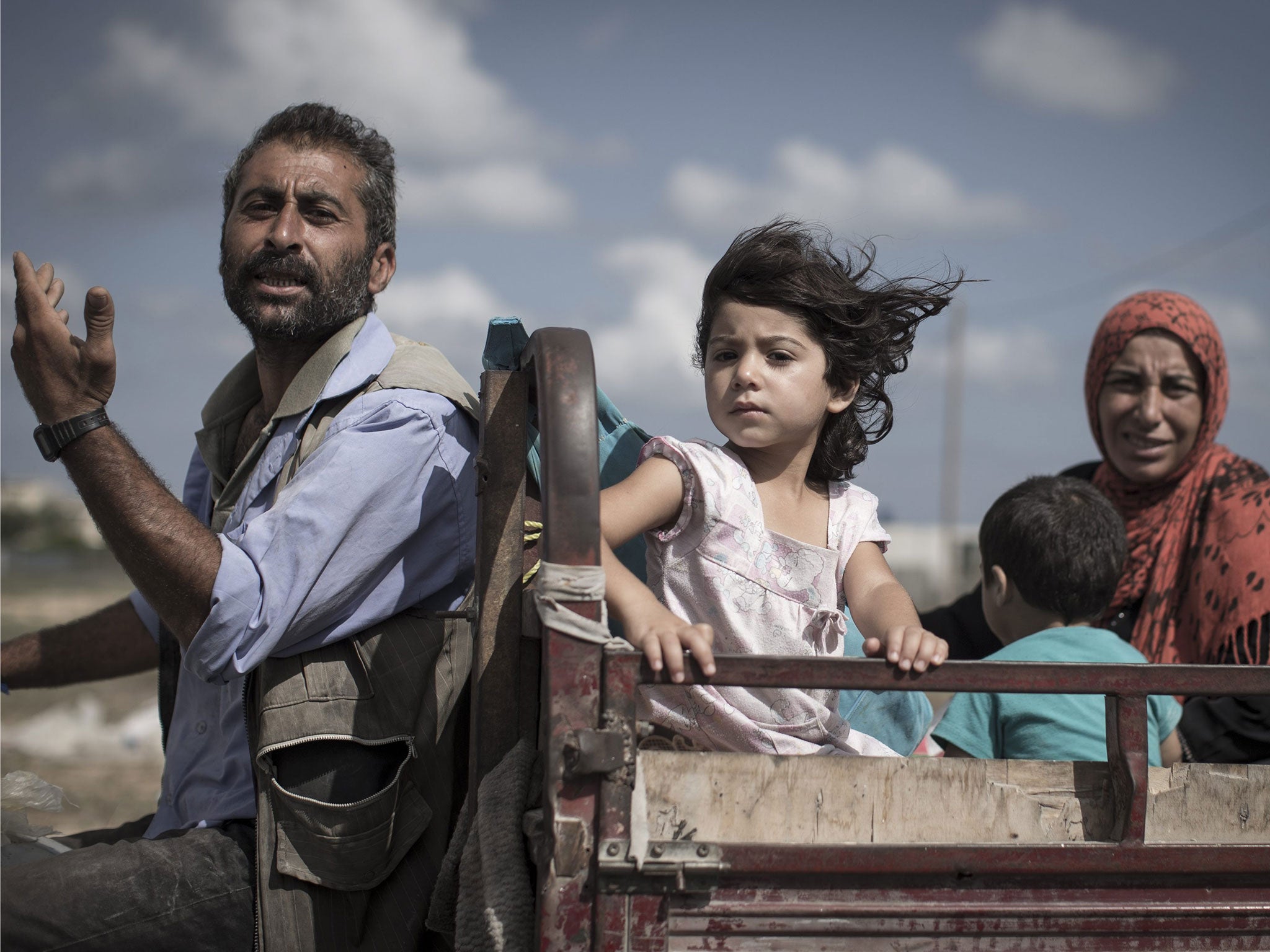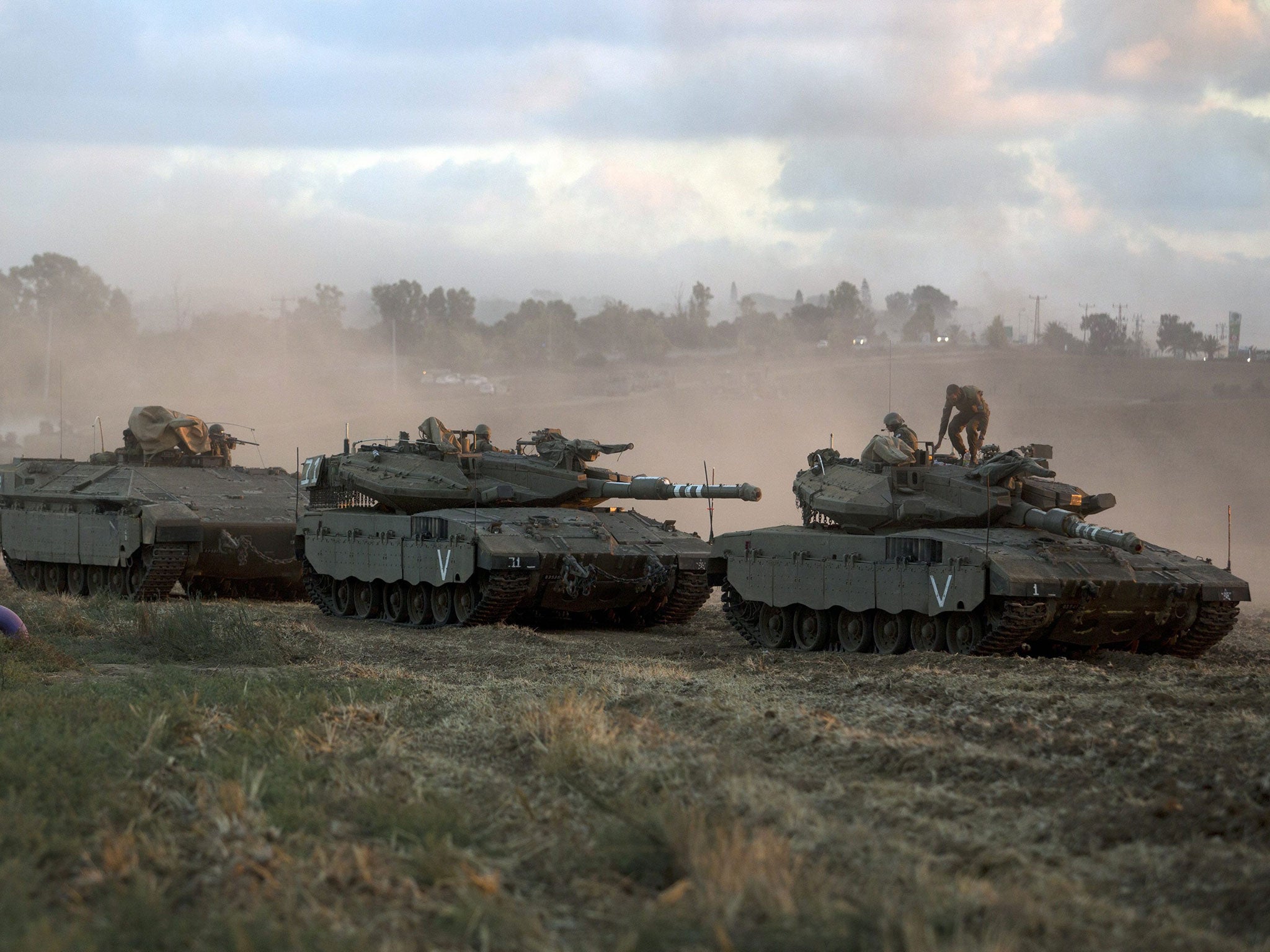Israel-Gaza conflict: Casualties mount, but Israeli PM Benjamin Netanyahu is determined to expand the military operation
The ground offensive to smash the power of Hamas comes at a terrible cost. Kim Sengupta reports on the dead and maimed arriving at the hospitals

Street fighting and ambushes, tank and artillery rounds, and air and naval strikes marked a day of sporadic but fierce fighting today as Israeli troops forced their way into the crowded towns and cities of Gaza.
The avowed aim of the mission ordered by Benjamin Netanyahu’s government was to smash the military power of Hamas. But there was a human cost: hospitals and clinics began to receive the dead and maimed, brought in by the few ambulances running. Others came in taxis, in private cars, some carried by hand. The Israeli military claimed that 17 Palestinian “militants” had been killed in firefights and 13 had surrendered. One Israeli soldier was killed: Staff Sergeant Eitan Barak, aged 20.
Hamas said it had inflicted casualties on the enemy in a number of encounters but it appeared more likely that S/Sgt Barak was killed by “friendly fire.” Palestinian health officials said 27 people had been killed and 260 injured since the invasion began. Some of the fighting was near tunnels which Hamas and Islamic Jihad have been using to fire rockets and as a way to cross the border into Israel.
Mr Netanyahu has stated that the operation “would be significantly widened”. Israel operates “buffer zones” around its security fences, shooting any Palestinians that enter the zones, leaving agricultural land unfarmed.
According to some Israeli military analysts, the army wants to extend the zone to 3km, which would make scarce farmland dangerous to use and thousands of homes uninhabitable. The intense bursts of combat, separated by periods of eerie calm, were accompanied by panicked families attempting to escape the violence. Some had returned to their homes after initially evacuating them. They did not believe the Israelis would act on their threats and that a ceasefire was pending. For many, it was the terrifying experience of tanks firing amid buildings which was the deciding factor.
The Hamid family of seven left their home in Beit Lahiya a week ago, soon after the conflict started, but returned on Wednesday thinking the danger was receding. They used the five-hour “humanitarian truce” agreed by the two sides on Thursday to stock up with food and water. Today, they returned home on two horse-drawn carts.
“I saw the tanks come up and start shooting. They were shooting all around,” said Mohammed Hamid, 19. “One of our relatives’ houses was hit and we thought we must get away.” One of their carts carried a cage with chickens and a bloodstained tray. A bystander wanted to buy one of the birds and asked if the tray was used for slaughter. “Normally,” said Waleed Sobah, “but that’s my cousin’s blood. She had a bad head injury. That was the first thing we could find to put under her. We haven’t had a chance to wash it.”
The Hamid family and those gathered around them had to leave as two missiles landed nearby. This was followed by long bursts of machine-gun fire nearby and the unusually loud sound of an Israeli drone overhead. People disappeared into doorways at the sound of aircraft overhead. Three figures stumbled down an empty stretch of Al-Awda road, coming out of Beit Hanoun. The road had proved particularly dangerous in the past two days and, after sizing them up, we offered them a lift.

They were Basel Shawqat, 26, his wife Khulood, 23, and her sister Yasmine. Their home had been hit by tank fire and they had fled without gathering any belongings. They were anxious to get to a place of safety as Khulood was pregnant and well into her third trimester. Basel, however, did not want to tell us where they were moving to. “It’s better you don’t know the place. You see, I’ve been targeted by the Israelis. They think I am a terrorist”, he said. “In fact, we should get out of your car. They will try to attack me again.”
Most victims of Israeli strikes deny that they have any connection with militias, and there is a disproportionate number of women and children among the 260 killed and 2,000 wounded, according to figures supplied by Palestinian health officials.
Nine-year-old Fulla Shahaibar was on the roof of her home in central Gaza City with her cousins – brothers Jihad, 11, and Waseem, nine – when the building was hit by a missile. The family said no warnings were given.
Another cousin, Basel Shahaibar,10, was injured in the attack. He is now in the intensive care unit at Shifa Hospital in Gaza City suffering from head and abdominal injuries and fractured arms. His father, Yassir, 35, said: “This is not the first time that the Israelis have hit kids. We have had no explanation why this keeps happening. Now, with soldiers here as well, there is a great danger that this will continue to happen. I just wish this to stop. I don’t feel any deep anger toward the Israelis; I just feel very sad.”

Many of the other beds in the ward were filled with patients from other hospitals without the facilities to deal with them. Wafaa, a clinic east of Gaza which specialises in rehabilitation, was hit by tank fire on Thursday night, for a second time in three days. “[The Israeli army] had asked us to evacuate before and we told them that we had nowhere to go to,” said Ali Hassan, one of the directors. “They called again last night at around 8.15, again demanding that we evacuate. As I was taking to them, the firing began. They hit the second, third and fourth floors. Luckily, the patients were on the first floor.”
Why did Mr Hassan think the hospital was targeted? “We don’t know. But this is Gaza. All kinds of things happen here which will not be tolerated anywhere else.”
Join our commenting forum
Join thought-provoking conversations, follow other Independent readers and see their replies
Comments